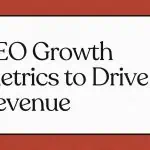Summary
Automated SEO reporting connects to Google Analytics, Search Console, ad platforms, CRMs and SEO tools to aggregate KPIs, standardize calculations, and deliver scheduled white label dashboards or PDFs. It replaces manual spreadsheets with significant time savings per client per week, higher data accuracy and consistency, scalable workflows, streamlined client communication, and near real time insights. Leading tools include SE Ranking, Semrush, Whatagraph and AgencyAnalytics, and effective rollout follows a reporting audit, template based setups, clear commentary tying KPIs to outcomes, and AI features such as predictive analytics and anomaly detection.
Our agency was once buried under a mountain of spreadsheets every Friday. Clients demanded weekly SEO updates showing rankings, traffic, and lead data from various platforms. Thanks to automated SEO reporting solutions, what used to consume our entire workday now takes minutes. This transformation has saved us time and freed us from manual work, revolutionising our workflow and enhancing client satisfaction.
What Is Automated SEO Reporting?
Automated SEO reporting uses digital tools to generate, compile, and deliver SEO performance reports with minimal manual effort. These systems connect directly to data sources such as Google Analytics, Search Console, and third-party SEO tools, automatically pulling information and assembling it into organised, visually appealing reports that can be scheduled for regular delivery.
Unlike manual reporting processes that require tedious copying and pasting across platforms, automated systems handle data collection, visualisation, and distribution with little to no human intervention, freeing up valuable time for analysis and strategy.
Challenges of Automated SEO Reporting. Before diving into automation benefits,it’ss worth understanding why manual methods create significant challenges:
- Time-intensive data collection from multiple platforms
- High risk of human error during data transfer and analysis
- Inconsistent reporting formats between clients
- Delayed insights due to lengthy reporting processes
- Limited ability to scale reporting as client base grows
These limitations become increasingly problematic as agencies grow their client base or as in-house teams take on more responsibilities.
Key Benefits of Automated SEO Reporting
1. Dramatic Time Savings
The most compelling advantage of automated SEO reporting is the significant time it saves. Research indicates that automation saves approximately 2 hours per client each week. For a mid-sized agency managing 20 clients, that translates to a staggering 40 hours saved, effectively freeing up an entire staff position. This significant time-saving feature reduces the aagency’sworkload and increases team efficiency, enabling them to accomplish more in less time.
This reclaimed time can be redirected toward:
- Developing more sophisticated SEO strategies
- Conducting experiments and tests
- Providing higher-value consultative services to clients
- Pursuing new business opportunities
- Improving team knowledge and capabilities
When teams spend less time compiling data, they can focus on interpreting and acting on it.
2. Enhanced Data Accuracy and Consistency
Manual reporting processes are inherently vulnerable to human error. A misplaced decimal, transposed number, or forgotten data point can lead to inaccurate conclusions and potentially harmful strategy adjustments.
Automated SEO reporting eliminates these risks by:
- Pulling data directly from source platforms without human intermediaries
- Applying consistent calculation methodologies across all reports
- Standardising data formats and visualisation techniques
- Eliminating typos, miscalculations, and oversight errors
- Ensuring all metrics are included in every report
This improved accuracy leads to more reliable insights and better decision-making for agencies and clients.
3. Streamlined Client Communication
Clear, consistent communication is essential for maintaining strong client relationships. Automated SEO reporting tools facilitate this by delivering professional, branded reports directly to clients’ inboxes at predetermined intervals.
“Automation means reports automatically get to the clients’ mail at a set time, a gesture that cannot easily be done manually,” notes one marketing expert.
These automated systems can:
- Schedule daily, weekly, monthly, or quarterly reports
- Customise delivery times to align with client preferences
- Include personalised messages with each report
- Maintain brand consistency across all client communications
- Provide real-time access to performance dashboards
This systematic approach improves client satisfaction while reducing the communication burden on agency teams.
4. Real-Time Performance Insights
In the fast-paced world of SEO, waiting days or weeks for performance data can mean missing critical opportunities. Automated reporting solutions provide near real-time access to performance metrics, enabling quicker responses to algorithm changes, competitive movements, or emerging trends.
These systems can continuously monitor key performance indicators, alerting teams to significant changes that may require immediate attention.
This agility allows SEO professionals to:
- Quickly identify and capitalise on ranking improvements
- Spot and address traffic drops before they become severe
- Recognise successful content patterns and replicate them
- Monitor the immediate impact of implemented changes
- Adjust strategies based on the latest performance data
The ability to make data-driven decisions faster gives automated teams a competitive advantage, instilling confidence in their strategies and actions. This confidence in the accuracy and timeliness of their decisions can lead to better outcomes and a stronger market position.
5. Superior Data Integration Capabilities
Modern SEO requires insights from numerous platforms and data sources. Automated reporting tools excel at integrating diverse data streams into unified, coherent reports. Rather than toggling between multiple dashboards, users can view comprehensive performance pictures in a single interface.
Top automated systems integrate with:
- Google Analytics and Google Search Console
- Paid Search platforms like Google Ads
- Social media analytics
- CRM and conversion data
- Competitive intelligence tools
- Technical SEO audit platforms
This integration capability delivers a more holistic view of digital performance, highlighting relationships between different marketing channels and SEO outcomes.
6. Scalable Reporting Processes
As businesses grow, manual reporting systems quickly become unsustainable. Automated SEO reporting solutions scale effortlessly, accommodating additional clients, websites, or campaigns without proportional increases in reporting time.
This scalability allows agencies to:
- Take on new clients without expanding reporting staff
- Maintain consistent report quality regardless of volume
- Offer more frequent reporting options to premium clients
- Create different report types for various stakeholder needs
- Handle complex multi-location or international SEO campaigns
The ability to scale reporting capabilities without a corresponding increase in resources significantly improves operational efficiency and profitability.
7. Customisation and White-Labeling Options
Modern automated SEO reporting platforms offer extensive customisation capabilities, allowing agencies to tailor reports to specific client needs and brand them as their own.
This flexibility enables:
- Inclusion of only the most relevant metrics for each client
- Custom visualisation styles that highlight key information
- Branded reports with client or agency logos and colours
- Personalised commentary and recommendations sections
- Industry-specific benchmarks and comparisons
White-labeling capabilities further enhance the professional appearance of automated reports, reinforcing agency expertise and strengthening client relationships.
Top Tools for Automated SEO Reporting
Comparison of Automated SEO Reporting Tools
SE Ranking
SE Ranking is a comprehensive solution combining robust SEO tracking capabilities with powerful reporting features. Its report builder integrates with its suite of tools, allowing users to pull data across platforms and convert it into customisable reports.
Key features include:
- Keyword rank tracking across major Search engines
- Website audit functionality
- Backlink analysis and monitoring
- Competitor SEO performance tracking
- Social media analytics integration
Semrush
Semrush offers extensive automation capabilities through its My Reports tool. Users can create custom reports or use pre-designed templates. Reports can be scheduled for regular email delivery, and the platform supports white labelling to remove Semrush branding.
The tool provides:
- PDF report generation and scheduling
- Online dashboard sharing
- White-label capabilities
- Integration with Semrush’s comprehensive SEO toolkit
- Customisable report content and design
Whatagraph
Ready to Revolutionise Your SEO Reporting?
Standout capabilities include:
- Direct connectors to over 50 digital marketing platforms
- Visual progress tracking toward goals
- Custom insights for individual clients
- Scheduled report delivery
- No manual data entry requirements
AgencyAnalytics
AgencyAnalytics provides comprehensive reporting solutions specifically designed for agencies. The platform features extensive integration options and white-labeling capabilities.
Notable features include:
- Automated report scheduling
- White-label dashboards
- Customisable client and staff access levels
- Integration with numerous SEO and marketing platforms
- AI-powered insights generation
Implementing Automated SEO Reporting Effectively
Successfully transitioning to automated reporting requires careful planning and implementation. Consider these best practices:
1. Audit Current Reporting Needs
Before selecting an automated reporting solution:
- Document all metrics currently included in client reports
- Identify data sources used for each metric
- Note reporting frequency and delivery methods
- Determine which metrics generate the most client engagement
- Consider which additional metrics might provide value
This audit will guide tool selection and implementation priorities.
2. Select the Right Tool for Your Specific Needs
Different businesses have different reporting requirements. When evaluating tools, consider:
- Integration capabilities with your existing technology stack
- Customisation options for different client types
- Pricing structure relative to your client volume
- User interface complexity and learning curve
- Available support and training resources
The ideal tool balances comprehensive capabilities with ease of use and cost-effectiveness.
3. Start with Template-Based Reports
Most platforms offer report templates that can accelerate implementation:
- Begin with standard templates that cover key SEO metrics
- Gradually customise these templates for specific client needs
- Create industry-specific templates for different client segments
- Develop templates at varying detail levels for different stakeholders
- Include comparison periods to showcase progress over time
Templates provide structure while allowing for progressive customisation.
4. Incorporate Meaningful Context and Insights
Automated data collection is valuable, but context matters more:
- Add annotations explaining significant changes or anomalies
- Include industry benchmarks where available
- Highlight relationships between different metrics
- Connect SEO performance to business outcomes
- Provide clear next steps or recommendations based on the data
The most effective automated reports combine data efficiency with human insight.
The Future of SEO Reporting Automation
As artificial intelligence and machine learning technologies advance, automated SEO reporting will continue to evolve. Emerging trends include:
- AI-generated insights and recommendations based on data patterns
- Predictive analytics forecasting future performance trends
- Natural language processing for plain-English data interpretation
- Automated anomaly detection highlighting unusual patterns
- Cross-channel attribution modelling for more accurate ROI assessment
These advancements will further enhance the value of automated reporting systems, moving them from data presentation tools to strategic insight generators.
The Competitive Advantage of Automated SEO Reporting
Today, operational efficiency creates a strategic advantage. Automated SEO reporting transforms a necessary but time-consuming process into a streamlined system that frees resources for higher-value activities.
By implementing automated reporting solutions, SEO professionals can:
- Reclaim dozens of hours weekly for strategic initiatives
- Improve data accuracy and decision-making quality
- Enhance client communication and satisfaction
- Respond more quickly to performance changes
- Scale operations without proportional resourcesincreasese
The question whichis solution best fits your specific needs and how quickly you can implement it. As one agency found after implementing automated reporting: “What used to consume our entire Friday is now accomplished in minutes, giving us back time for what really matters: strategy, optimisation, and results.”
Sources:
- https://searchengineland.com/automated-seo-reporting-for-clients-the-agencys-guide-434311
- https://www.siteimprove.com/glossary/automated-seo-reporting/
- https://thimpress.com/best-seo-reporting-tools/
- https://searchatlas.com/blog/white-label-seo-reporting-tools/
- https://backlinko.com/best-free-seo-tools
- https://www.geckoboard.com/dashboard-examples/marketing/seo-dashboard/
- https://ahrefs.com/blog/seo-reporting-tools/
- https://www.youtube.com/watch?v=54xNKbBjQtE
- https://www.reportingninja.com/blog/best-seo-reporting-tools
- https://databox.com/dashboard-examples/seo
- https://www.semrush.com/blog/seo-report/
Q&A
Q1. What is automated SEO reporting, and how does it work?
It connects to GA, GSC, ads, CR, M, and SEO suite; auto-pulls and normalises metrics; and then sends scheduled white-labelled reports or live dashboards.
Q2. What are the core benefits of automated SEO reporting for agencies?
Saves about 2 hours per client weekly, reduces human error, enforces consistent formats, enables near real-time monitoring, and scales across accounts.
Q3. Which automated SEO reporting tools should I evaluate first?
SE Ranking, Semrush My Reports, Whatagraph and AgencyAnalytics, each offering integrations, templates, scheduling, and branding controls.
Q4. How do you implement automated SEO reporting effectively?
Audit metrics and sources; pick a tool that fits the stack and budget; start with templates; add concise insights and benchmarks; align the delivery cadence with stakeholders.





